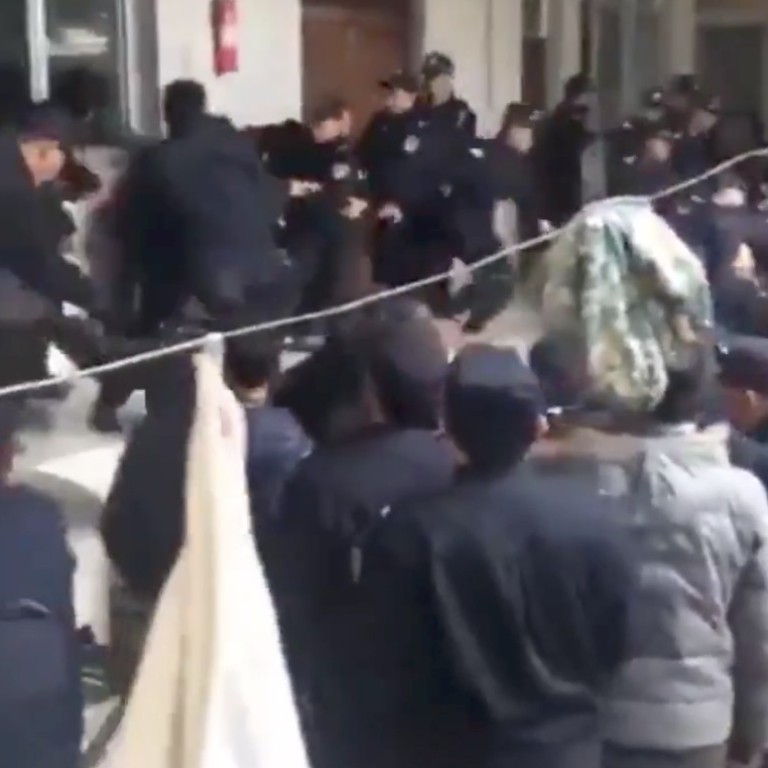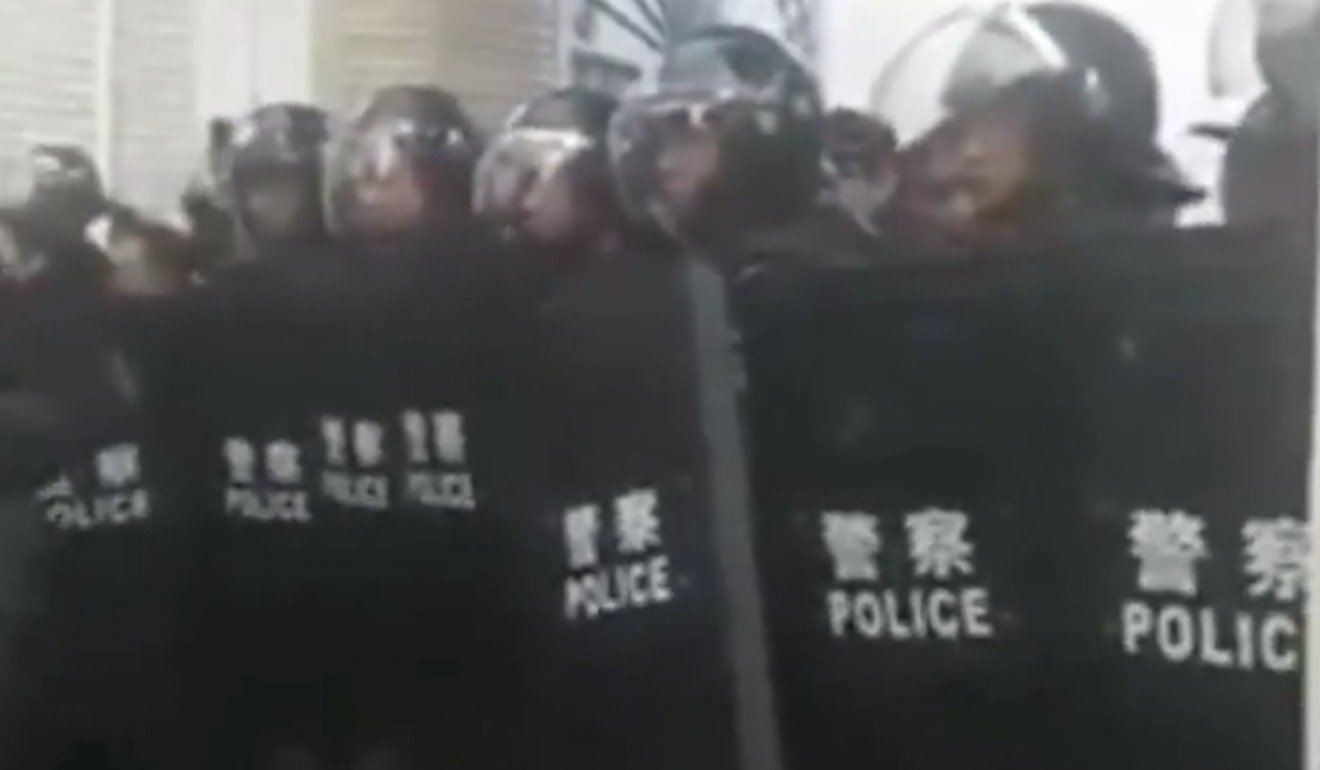
Chinese authorities close three Hui Muslim mosques for ‘illegal religious education’
- Security forces in Yunnan continue nationwide crackdown on religious worship
- Authorities say mosque goers have persisted in breaking the law
Three “illegal” Hui mosques in the southwestern Chinese province of Yunnan were closed by authorities on Saturday, but officials refused to say if worshippers were arrested.
Weishan County Propaganda Bureau would not say if anyone was held, only that police had taken the necessary measures against what authorities called “illegal worship”.
Officers at Weishan County Public Security Bureau and Weishan Yongjian police station refused to discuss arrests or if mosques were earmarked for demolition, but said there would be a statement on the matter.
An official notice published on Weibo on Saturday claimed that the mosques were illegally established and conducted “illegal religious education” outside state guidelines.
The closure of mosques in Weishan followed a series of crackdowns and harassment against Muslims which has involved the closures of mosques and Arabic-language schools in Ningxia and Gansu – both Hui Muslim heartlands in the north of China – after President Xi Jinping’s call to “Sinicise religion” and bring it under the authority of the Communist Party.
Police action in the villages of Huihuideng, Sanjia and Mamichang was coordinated by the Weishan County Ethnic and Religious Affairs Committee to “protect harmony and stability in the religious domain”, the official notice said.
They said government workers had tried to educate the worshipperson Chinese law concerning religious affairs several times.
A source in Yunnan told BuzzFeed News that registration applications from mosques had been denied by local authorities several times in the past decade.
In China, mosques and other religious establishments must be registered and approved by the state before they can operate legally. Each province has its own religious associations, which fall under the control of a local ethnic and religious affairs bureau.
Video footage of Saturday’s police raids appeared on Twitter. A clip shared by the NGO Documenting Oppression Against Muslims shows dozens of uniformed police officers confronting Hui Muslim worshippers, dragging them from a mosque entrance. Police officers were shown shoving and, in some cases, attacking protesters.
“Five or six police officers held me down on the floor and I was beaten until I lost consciousness,” one female worshipper’s WeChat message shared on Twitter said.
“My arms are weak now. If my mother hadn’t saved me, I would have been taken away by police. My mother was then taken away. I’m scared she was beaten by them.”
Images shared on Twitter show mosque entrances chained, with signs stuck on the doors which read “Ethnic and Religious Affairs Committee, Weishan Yi and Hui Autonomous County”.
Yunnan province, which shares a border with Laos and Myanmar, has traditionally been home to ethnic and religious minorities who have experienced relative government tolerance of their beliefs and customs.
The Hui Muslim community in Yunnan numbers about 700,000. China is home to an estimated 23 million Muslims.

Freedom of religious belief is officially enshrined in Chinese law, but in recent years followers of Christianity, Islam and Buddhism have faced increasing restrictions.
“I think these raids illustrate that the party-state very much intends to continue its programme of centralisation and standardisation of religious practices under the Communist Party’s supervision,” said David Stroup, an expert on Chinese ethnic politics at the University of Oklahoma.
“These raids come just a few weeks after Ningxia sent officials to Xinjiang to ‘study’ the campaign there, and state-media outlets, like the Global Times, wrote editorials in praise of Xinjiang's example.
"The fact that the mosques applied for registration suggests that the mosques and their congregants did not feel that their presence or their practice of Islam was out of line with the state's priorities,” said Stroup.
“More than anything, I think this suggests that the party-state is changing its standards and moving the goalposts for religious groups' compliance. What might have been acceptable or tolerated in the past is no longer tolerable.”
Over the summer, Chinese authorities were forced to delay the demolition of the newly built Weizhou Grand Mosque in Ningxia Hui autonomous region after hundreds of Hui Muslims turned out to protest.
Meanwhile, Arabic signs have been removed and Arabic-language schools have been forced to shut down in Ningxia and nearby Gansu province.
This came as the government intensifies repression of Uygur Muslims in Xinjiang, in China’s far west.


